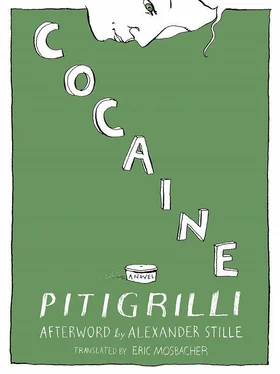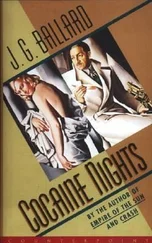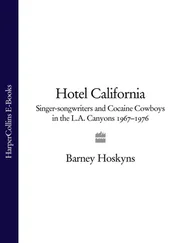Clearly, his early experience as an illegitimate child — with a deep desire to avenge himself on the supposedly more respectable world that snubbed him and his mother — was highly formative. The idea repeatedly appears in his writing that illegitimacy is proof that life itself is fundamentally a mistake, and proof too that “respectable” society is nothing but a hypocritical lie: “One is born almost always by mistake.”
In some sense, Pitigrilli almost certainly regarded his spying activity as strangely consistent with the nihilistic cynicism that he articulated in his books — hating your neighbor as you love yourself, revenge as a safety valve, the celebration of lying. Pitigrilli reserved his most withering cynicism for those high-minded people who actually imagined that they were acting out of principle. A character in the novel L’esperimento di Pott (published in English in 1932 as The Man Who Searched for Love ) remarks, “I am afraid of incorruptible people. They are the easiest to corrupt. Corruptible people have their price: it’s only a question of the amount. Sometimes, luckily, the price is so high that no one reaches it. But incorruptible people are really dangerous, because they… are corrupted not by money but by words.”
This is almost certainly how the antifascists of Giustizia e Libertà would have appeared to Pitigrilli: young, idealistic people who were ready to face prison for their ideas and who also tended to look down on a popular writer like Pitigrilli as not altogether serious.
After Sion Segre’s arrest, Pitigrilli approached some of his cousin’s friends and offered to help them. As an internationally acclaimed author he travelled frequently to Paris, where the leaders of Giustizia e Libertà were based. Pitigrilli was thus in a perfect position to act as a kind of courier between the base in Paris and its membership in Turin without attracting suspicion. The Italian customs officials frequently asked him for autographs rather than closely inspecting his bags when he re-entered Italy. Interestingly, there was some debate among the GL people about whether they could trust Pitigrilli. Some of them suspected him because of his “immorality.”
In fact, Vittorio Foa, one of the young men on whom Pitigrilli spied on, noted that one of the older members of their group did object to Pitigrilli because of the immorality of his books. “We thought that was very funny at the time, but maybe he was right,” Foa told me fifty years after the fact. Pitigrilli’s cynical epigrams may have served as a kind of justification for his spying activities: “What could be more relative than an idea? A man is a traitor or a martyr depending on whether you look at it on one side of the border or another.” In retrospect, Foa surmised that Pitigrilli may have been motivated by a kind of perverse instinct, “the pleasure of doing harm to others.”
Pitigrilli was also handsomely paid for informing, six thousand lire a month, several times the value of a typical salary. But for one who regarded all activities as a camouflaged form of prostitution, this would not have represented a problem of conscience.
Pitigrilli’s career as a spy peaked in 1935, the year in which his secret reports led to the arrest of Foa and some fifty other suspected antifascists, many of whom, like Foa, spent the next several years in prison. Pitigrilli suspected that his great triumph might diminish his power as a spy. He actually suggested to the fascist police that he too be arrested with the others to deflect suspicion from himself and retain his utility as an informant. The police did not follow up on this suggestion and word trickled out from those in prison that Pitigrilli had been the traitor.
In 1936, the fascist regime began to prevent the reprinting of most of his books and in 1938 Pitigrilli, who had informed on his cousin, possibly motivated by powerful anti-Jewish resentment, himself fell victim to the racial laws passed by Mussolini in 1938. A note from the fascist secret police in 1939 states: “We thank you for all you’ve done up until now for us, but given the present situation we are compelled to renounce your further collaboration.” For the purposes of the fascist bureaucracy, he was thenceforth known as “the well-known Jewish writer Dino Segre, alias Pitigrilli.”
Even though Dino Segre was only half Jewish, his situation was made worse by the fact that, as a young man, he had married a Jewish woman, with whom he had had a child. Because divorce was not legal at that time, they were still technically married, even though Pitigrilli had long abandoned both mother and child. In order to improve his circumstances, Pitigrilli/Dino Segre consulted a female Catholic lawyer named Lina Furlan, who succeeded in having his marriage annulled. As Furlan explained many years later, the Church’s position was that since the marriage had occurred outside of the Church, it had never actually existed as a marriage. Among those whom Furlan consulted was the Vatican’s deputy Secretary of State, Monsignor Giovanni Battista Montini, the future Pope Paul VI. “Montini told me that as far we’re concerned there has never been a marriage, it was only a ‘concubinaggio’ (living in sin).” After obtaining the annulment, Pitigrilli then married his lawyer, Lina Furlan, in a church in Genoa on July 26, 1940.
This did not change his status with the fascist government and he continued to write self-pitying letters to Mussolini pleading for recognition as an “Aryan” so that he could work freely.
Rome, March 25 XX [1942.]
Duce,
I understand that my little personal troubles are irrelevant to the great historical drama of the moment. But since you, with a word, can resolve my situation… I ask you to consider it: you will see at first sight that my request for recognition of belonging to the Aryan race is legitimate, since I have all the requisites required by the law. Remove me, Duce, from this unjust, degrading and paradoxical situation, in which I am forced to work in secret, to suffer the pettiness of rivals and to continue boring you with my tedious tale…
Pitigrilli
Pitigrilli and Lina Furlan fled to Switzerland at the time of the German occupation and after the war he emigrated to Argentina, that refuge of many fascists and Nazis fleeing possible arrest and punishment. Later in life, he drifted back to Italy, but his reputation had diminished to the point that almost no one noticed. He died in 1975 in near total obscurity.
There was no place for Pitigrilli in a post World War II culture that was dominated by antifascism and by some of the very men and women — the Ginzburgs, Levis, Olivettis and Foas — on whom he had spied. And yet in retrospect, Pitigrilli is a highly emblematic forgotten figure, a poète maudit of Italy of the 1920s; his cynical comic satire describes the disillusioned world that followed World War I and proved fertile for the triumph of fascism.
— Alexander Stille



